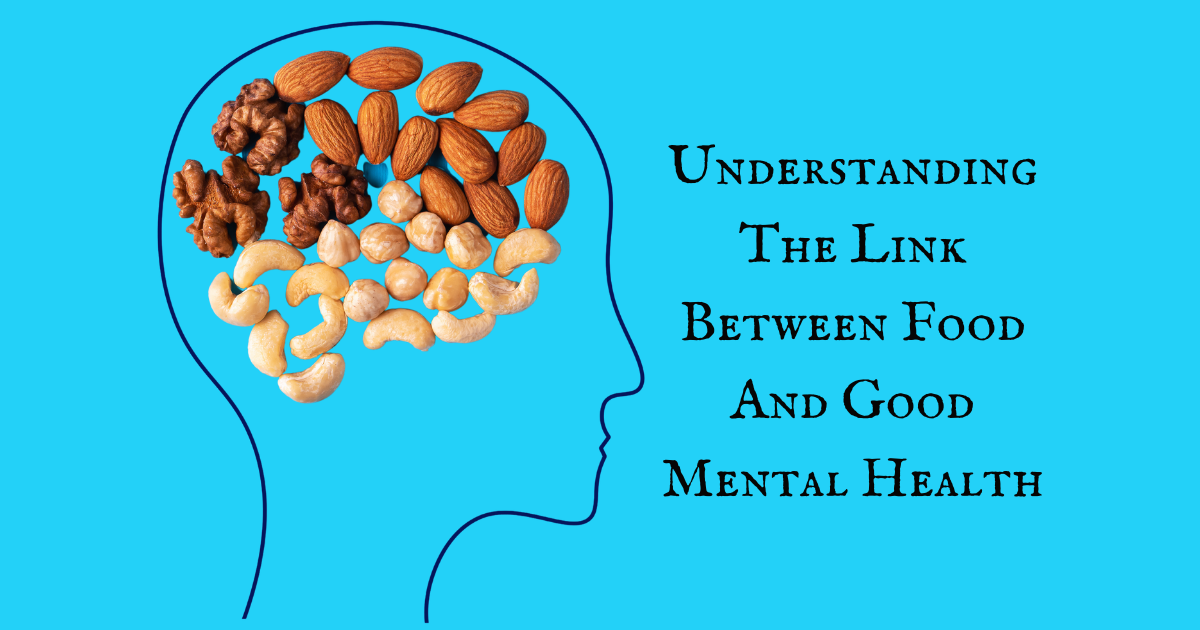Introduction:
In this blog, we delve into the vital connection between food and good mental health, exploring the impact of gut health and the power of certain foods in optimizing brain function and overall cognitive health.
We all know that good nutrition is essential for our physical health, but it is also essential for our mental health. We often prioritize physical well-being through exercise and a balanced diet. We may overlook the crucial role nutrition plays in nurturing our mental health. As research continues to unfold, it becomes increasingly clear that feeding our brain is just as important as nourishing our bodies.
The Gut-Brain Connection:
Did you know that our brain relies on two primary sources of nutrition? We can feed our brain in two ways: from the nutrition we pass from digestion in the gut into our blood stream and via the nutritional aspect of the microbes in our gut (the microbiota). The gut microbiota plays an important part in modulating the gut-brain-axis (the connection between the gut and the brain) and can affect brain development, function, and behaviour.
Unveiling the Power of Psychobiotics:
Certain bacteria – so called ‘psychobiotics’ – have been identified as bacteria that have a positive effect on mental health. For example, the strain Bifidobacterium longum 1714™ has been shown to reduce stress responses and affect brain function by changing the electrical activity in the brain. It’s amazing how these tiny organisms can influence our emotions and cognitive processes.
Foods that Nourish Your Brain:
Certain foods hold the key to cultivating a thriving gut environment. By consuming the following foods, you can enhance the growth of beneficial bacteria in your gut:
- Poly-unsaturated fatty acids: Fish, such as salmon and mackerel, provide omega-3 fatty acids that support brain health.
- Inulin-rich foods: Bananas, wheat, leeks, and onions are excellent sources of inulin, a dietary fiber that promotes gut health and microbial diversity.
- Plant polyphenols: Berries, plums, and apples contain polyphenols, potent antioxidants that can positively impact gut microbial composition.
- Turmeric: This spice, enriched with curcumin, exhibits anti-inflammatory properties and may contribute to a healthy gut environment.
Fresh food is the best delivery method for improving the diet. Whilst supplements can be seen as a convenient solution, they are not a replacement for good food. Supplements should be taken with caution and under advice from a trained professional.
The Mediterranean Diet for Mental Well-being:
When it comes to adopting a nutrition plan that supports both physical and mental health, the Mediterranean diet shines. This dietary approach emphasizes the consumption of vegetables, fruits, legumes, nuts, beans, cereals, grains, fish, and unsaturated fats like olive oil. Meanwhile, it promotes a reduced intake of meat and dairy products. By embracing the Mediterranean diet, you provide your body and brain with the nourishment they need to thrive.
When we understand the link between food and good mental health we can improve our lives. Embracing a diet that supports both your body and mind, such as the Mediterranean diet, can lead to a happier version of you. And don’t forget, when it comes to improving our mental health it’s important to remember our brain loves exercise too.
For more information on maintaining a balanced diet and improving mental health, consult the comprehensive NHS Eatwell Guide available at www.nhs.uk.

